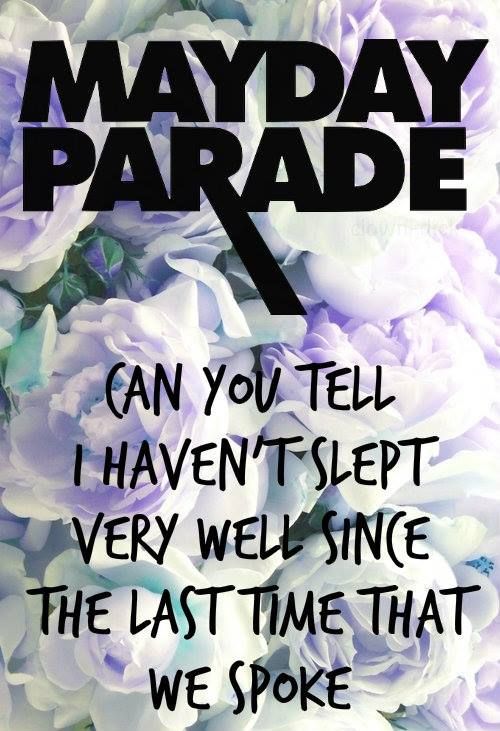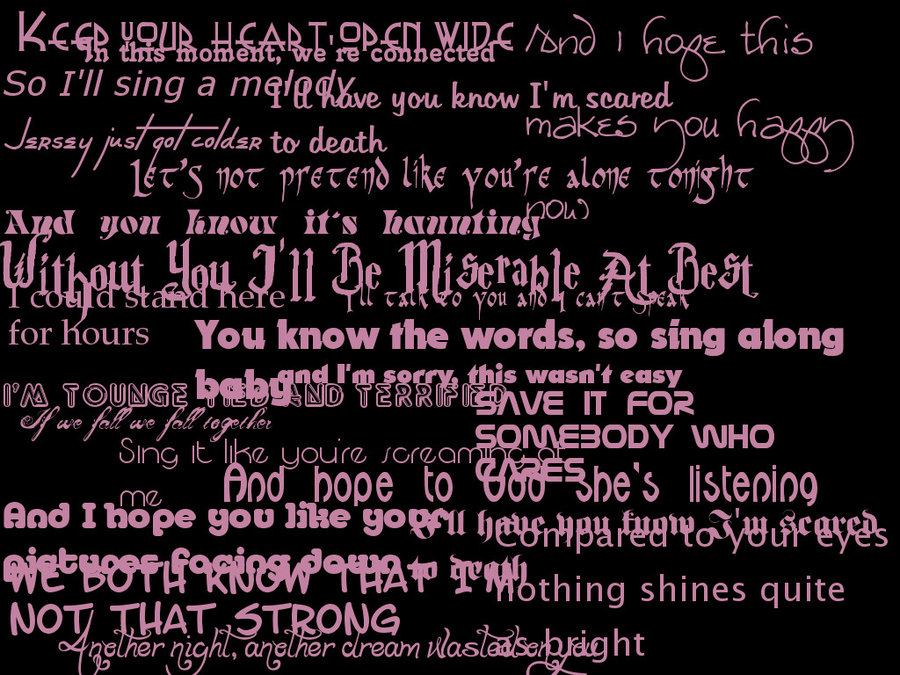

But I also can’t mix songs like him, I can’t hear how I want it to sound at the end. It also breaks my heard that I cannot sing like Ryan Tedder. Ryan assembles his mini choir and then shows off his musical genius by arranging them in a way that makes “Preacher” sound like it was sent down from Heaven. But outside of that it is really interesting to me the way that the tracking and rehearsing is happening in this video. “Preacher” is probably my favorite song on the new album. OneRepublic just released a video that chronicles some of the final steps in assembling “Native.” One of the last songs they tracked was “Preacher.”

Mayday Parade is currently tracking for their new album, expected in the fall of 2013, The Cab and Parachute are tracking for their albums, hopefully expected sometime this year and then, of course, The Summer Set and OneRepublic are running around the globe, supporting their albums, expected out April 16 and March 26. If, somehow, anyone hasn’t figured out my favorite bands I will say them again. Either way, those skills don’t really help me to make the sort of music that I wish I could.įor some reason (I’m pretty sure it’s just to torture me) all of my favorite bands (with the exception of Go Radio, though they are on tour) are busy tracking records and posting updates or supporting new records and also posting updates. Actually, I can play flute and I can play the right had of “My Heart Will Go On” on the piano. I can’t sing, much less play any sort of instrument. In 1927, the United States formally adopted it as an official radiotelegraph distress signal, helpfully explaining in Article 19 of their resolution that mayday corresponds "to the French pronunciation of the expression m'aider.Perhaps the greatest tragedy in my life is that I am completely not musically inclined in anyway. The call spread well beyond the Channel the new distress signal's use was reported as far away as Singapore. Supposedly, mayday was coined by Frederick Stanley Mockford, a senior radio officer in Croydon, but we’ve been unable to substantiate that claim. They gave the signal three times and said their engines had failed, and radio operators in Croydon and Lympne received and transferred the signal to Dover, which sent out help. The Times article goes on to say that the new distress call was tested by an RAF "flying-boat" whose engines had failed over the Channel. Aircraft, by comparison, used radio and not telegraph as their primary means of communication, and when in distress, a pilot wouldn't have time to clarify to anyone listening that they meant S as in "Sam" and not F as in "Frank." A short, easily understood word that couldn’t be mistaken for something else was necessary. SOS was used predominantly by ships that were in distress.
#MAYDAY PARADE STAY MEANING CODE#
SOS was most commonly used in telegraphic communications, where the unmistakable pattern of SOS in Morse code (.-.) was easy to remember and easy to decipher. "New Air Distress Signal," The Times, 2 Feb. Owing to the difficulty of distinguishing the letter "S" by telephone, the international distress signal "S.O.S." will give place to the words "May-day", the phonetic equivalent of "M'aidez", the French for "Help me." But surely there already was a distress signal that everyone understood? There was- S.O.S.-but there were some problems with it: There was a lot of air traffic between England and France in those days, and evidently there were enough international problems over the English Channel that both parties wanted to find a good distress signal that everyone would understand. The May Day that refers to the first of May has been in English for a very long time-back to the 1200s, in fact-but it’s not what inspired the call for help. It appears as both an interjection ("Mayday! Mayday!") and to modify a noun ("a mayday signal").
#MAYDAY PARADE STAY MEANING TV#
It's used mostly by aircraft and boats, and most of us are happily only familiar with it through TV and fiction. Mayday is an internationally recognized radio word to signal distress. The terms sound similar, but they have different origins. 'May Day' is a spring holiday and, in some places, a celebration of working people. 'Mayday' is an internationally recognized distress signal.


 0 kommentar(er)
0 kommentar(er)
